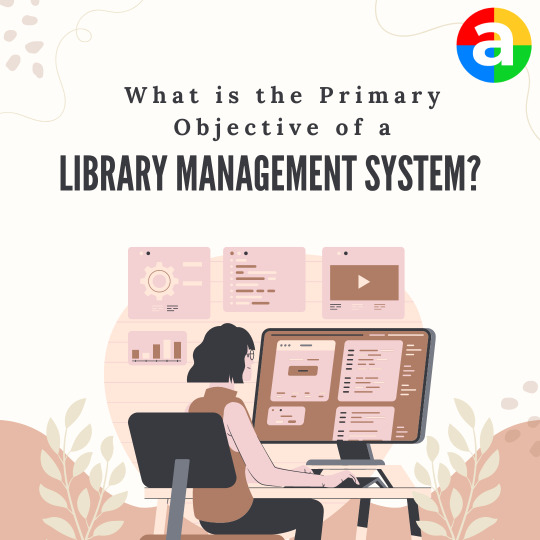#DataDrivenLibraries
Explore tagged Tumblr posts
Text
Understanding the Primary Objective of a Library Management System

In the digital age where information is abundant and easily accessible, the role of libraries may seem diminished to some. However, libraries remain indispensable institutions for communities worldwide, serving as hubs of knowledge, culture, and education. To efficiently manage the vast resources and services they offer, libraries employ sophisticated systems known as Library Management Systems (LMS). But what exactly is the primary objective of these systems?
At its core, the primary objective of a Library Management System is to streamline and enhance the various operations and functions within a library environment. From cataloging and organizing materials to facilitating patron interactions, an LMS acts as the backbone that supports the smooth functioning of a library. Let's delve deeper into the key aspects of its primary objectives:
Efficient Resource Management: Libraries house an extensive collection of books, periodicals, multimedia materials, and digital resources. One of the foremost objectives of an LMS is to efficiently manage these resources. This includes tasks such as cataloging items, maintaining accurate records of inventory, tracking circulation, and ensuring easy retrieval of materials through effective indexing and search functionalities.
Facilitating Patron Services: Another crucial aspect of LMS is to enhance the experience of library patrons. This involves providing user-friendly interfaces for searching and accessing resources, managing membership and borrowing privileges, facilitating online reservations and renewals, and offering personalized recommendations based on user preferences and borrowing history.
Automation of Routine Tasks: LMS aims to automate routine administrative tasks to free up staff time for more value-added activities. Functions like generating reports, managing fines and fees, sending overdue reminders, and handling inter-library loans can be automated through the system, improving operational efficiency and reducing manual workload.
Data Management and Analysis: Modern LMS platforms are equipped with robust data management capabilities. They capture and analyze various metrics related to library usage, circulation patterns, popular resources, and user demographics. This data-driven approach enables libraries to make informed decisions regarding collection development, resource allocation, and service improvements.
Integration with Digital Technologies: With the proliferation of digital resources and online services, LMS must seamlessly integrate with digital technologies. This includes providing access to e-books, e-journals, databases, and other electronic resources, as well as supporting digital lending, access controls, and authentication mechanisms to ensure secure and convenient access for patrons.
Enhancing Collaboration and Communication: LMS often serve as platforms for collaboration and communication among library staff, enabling them to coordinate workflows, share information, and collaborate on projects more effectively. Features such as messaging systems, task assignments, and centralized document repositories facilitate teamwork and improve internal communication within the library.
Adaptability and Scalability: As libraries evolve to meet changing user needs and technological advancements, LMS must be adaptable and scalable. The primary objective is to future-proof the system by ensuring that it can accommodate new functionalities, integrate with emerging technologies, and scale up to support growing collections and user bases without compromising performance or usability.
In conclusion, the primary objective of a Library Management System is to optimize the operations of a library, enhance user experiences, and enable libraries to fulfill their mission of providing access to information and knowledge. By leveraging technology to streamline processes, improve services, and harness data-driven insights, LMS play a vital role in the modernization and continued relevance of libraries in the digital age.
If you like to read more about it please visit analyticsjobs.in
#LibraryManagementSystem#LibraryAutomation#EfficientLibraries#DigitalResources#UserExperience#DataDrivenLibraries#TechnologyInLibraries#FutureOfLibraries
0 notes